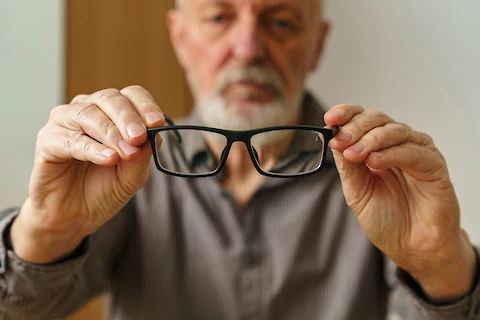
Glaucoma, a common age-related eye disease, often goes unnoticed until it's too late due to its gradual onset. As we grow older, understanding the intricacies of this condition becomes increasingly crucial. This article offers a comprehensive definition of glaucoma, its symptoms, and its risk factors. Especially for seniors, gaining this knowledge could be the first step in preventing vision loss. However, if you suspect that you or a senior loved one is showing signs of glaucoma, you must seek professional medical advice.
Understanding Glaucoma
Glaucoma is a term for a group of eye conditions that damage the optic nerve, the vital cable that transmits visual data from the eye to the brain. This damage often results from elevated inner eye pressure, commonly known as intraocular pressure. There are various types of glaucoma, including open-angle glaucoma and angle-closure glaucoma. The former is the most common type and progresses slowly, while the latter occurs less frequently but develops suddenly and is a medical emergency.
Symptoms of Glaucoma
Glaucoma's unobtrusive nature makes it a challenging condition to diagnose early. In many cases, there are no warning signs. Symptoms, when they appear, often include patchy blind spots in peripheral or central vision, frequently in both eyes. In advanced stages, people might experience tunnel vision. When it comes to acute angle-closure glaucoma, symptoms can be more severe, including intense eye pain, nausea, vomiting, and blurred vision. You want to act quickly if you suspect you have some of these symptoms to give yourself the best chance of treating this eye problem.
Risk Factors for Glaucoma
Several factors increase the likelihood of developing glaucoma. These include being over 60, having a family history of the condition, certain medical conditions like diabetes, high internal eye pressure, and severe nearsightedness or farsightedness. Understanding these risk factors can help you stay informed about your potential susceptibility to the disease and prompt you to take preventative measures.
Importance of Regular Eye Check-ups
Regular eye check-ups are vital for early detection of glaucoma. Many people often do not realize they have the condition until they've lost significant vision, which cannot be recovered. However, with early detection, treatment can slow or prevent further vision loss. For this reason, we strongly encourage our senior community to maintain a regular schedule for comprehensive eye examinations, even if you do not have any noticeable symptoms.
Senior Helpers Southeastern Massachusetts Helps Seniors With Glaucoma Navigate Daily Tasks
The importance of understanding glaucoma, its symptoms, and its risk factors cannot be overstated. If you are a senior living in Plymouth, Raynham, Dartmouth, Attleboro, or Bristol County, please consider reaching out to Senior Helpers Southeastern Massachusetts for assistance. Remember, while this blog post intends to raise awareness about glaucoma, it should not replace professional medical advice or diagnosis. So, if you suspect you might have glaucoma, please consult with a healthcare professional immediately. We can work together towards preserving our sight and living a fulfilling life, even in our golden years.